1. Bidets in Bathrooms
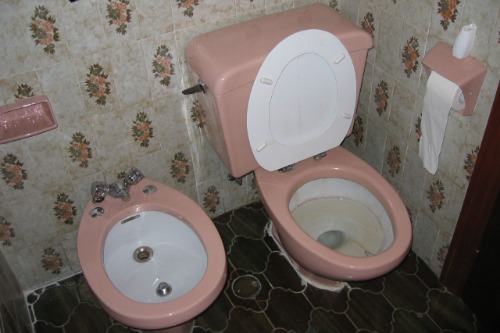
Americans are oddly resistant to something the rest of the world finds completely normal—bidets. In places like Japan, Italy, and South Korea, bidets are standard in bathrooms, making toilet paper seem almost primitive. They’re more hygienic, better for the environment, and just more comfortable. Yet in the U.S., they’re seen as a strange luxury or something only found in high-end hotels.
According to CNN, the pandemic toilet paper shortages briefly made Americans reconsider, but bidets still haven’t gone mainstream. Instead, people continue spending money on endless rolls of toilet paper while other countries enjoy a cleaner, more sustainable option. Many who travel abroad and experience a bidet for the first time wonder why they ever went without one. It’s a simple upgrade that the rest of the world takes for granted.
2. Paid Parental Leave

For many Americans, having a baby means using up vacation days, unpaid leave, or rushing back to work too soon. The U.S. is one of the only developed countries that doesn’t guarantee paid parental leave for new parents. In contrast, countries like Sweden, Japan, and Canada offer months—or even years—of paid time off to bond with newborns, according to The New York Times. Parents in these places don’t have to choose between a paycheck and spending time with their child.
Because of this, American parents often struggle with exhaustion and stress in those crucial early months. Many rely on family members or expensive daycare almost immediately after birth. In countries with paid leave, both parents often get time off, allowing for a more balanced family dynamic. It’s a system that benefits children, parents, and the economy, yet it remains out of reach for most Americans.
3. Affordable Higher Education
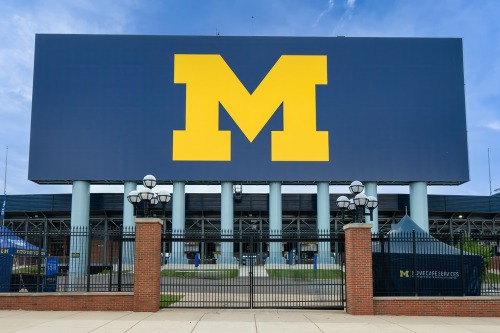
The idea of graduating without crushing student debt feels almost mythical in the U.S. College tuition has skyrocketed over the years, according to Business Insider, forcing many students to take out loans they’ll be paying off for decades. But in countries like Germany, Norway, and France, public universities are either free or extremely low-cost. Higher education is treated as a public good, not a financial burden.
In these places, students can focus on learning rather than worrying about loan payments. The U.S., on the other hand, turns education into a business, profiting off students who simply want better career opportunities. Many Americans envy the idea of going to college without worrying about years of repayment. Meanwhile, other countries wonder why something so essential is treated as a luxury.
4. Reliable Public Transportation
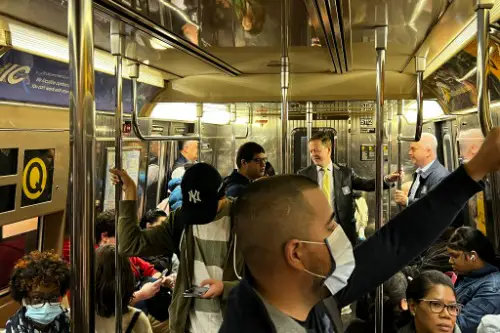
In many parts of the U.S., not having a car means struggling to get anywhere, according to The Guardian. Public transportation in most cities is either unreliable, expensive, or nonexistent, making car ownership a necessity. But in countries like Japan, Switzerland, and the Netherlands, efficient public transit is a normal part of life. High-speed trains, frequent buses, and well-connected metro systems make it easy to get around without a car.
Americans often romanticize the idea of taking a train across Europe or hopping on a subway that actually runs on time. Meanwhile, they’re stuck dealing with traffic, gas prices, and the cost of maintaining a car. In cities with good transit systems, people save money and time while reducing their environmental impact. Yet in the U.S., even suggesting better public transit sparks endless debates.
5. Work-Life Balance

Americans wear overwork like a badge of honor, often glorifying long hours and burnout. In contrast, many other countries prioritize work-life balance, ensuring that people actually have time to enjoy their lives. Countries like France and Denmark have strict labor laws that limit working hours and encourage time off. Many businesses even shut down for weeks at a time so employees can take proper vacations.
Meanwhile, in the U.S., people often feel guilty for using their vacation days—if they even get them, Forbes reports. The idea of leaving work on time or disconnecting from emails after hours is almost unheard of. In other countries, people expect their free time to be respected, making for healthier, happier workers. It’s a luxury Americans don’t realize they’re missing until they see how different it is elsewhere.
6. Vacation Time
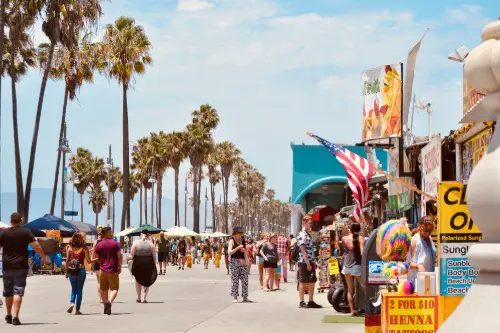
Taking an actual vacation without guilt or financial stress is a rarity in the U.S. Most American workers get little to no paid vacation time, and many feel pressure to skip it entirely. Meanwhile, countries like Spain, Italy, and Sweden guarantee several weeks of paid leave each year. People actually take time off to relax, travel, and spend time with family—without worrying about losing their jobs.
The difference is especially stark when looking at European countries, where vacations are considered essential for well-being. Americans, on the other hand, are expected to be available 24/7, even when technically “off.” The result? Burnout, stress, and an entire culture that struggles to unplug.
7. Free Healthcare

In America, the idea of going to the doctor without worrying about a massive bill feels like a dream. Even with insurance, co-pays, deductibles, and surprise charges can make medical care a financial nightmare. But in many countries, healthcare is funded through taxes, and people can walk into a hospital or clinic without stressing over the cost. Countries like Canada, the UK, and Germany consider this a basic right, not a privilege.
Meanwhile, Americans often debate whether universal healthcare is even possible, despite nearly every other developed country making it work. Medical bankruptcies are practically unheard of in places with free healthcare, while they’re a common reality in the U.S. Even basic medications like insulin or antibiotics are far more affordable abroad. It’s no wonder so many Americans travel just to get medical treatment at a fraction of the price.
8. Drinkable Tap Water

In many countries, tap water is safe, clean, and perfectly fine to drink. But in the U.S., water quality varies wildly depending on where you live, forcing many people to rely on bottled water or expensive filtration systems. Countries like Switzerland, Finland, and New Zealand have strict regulations that ensure safe drinking water for everyone. Meanwhile, Flint, Michigan, and other areas have shown just how unreliable American tap water can be.
Access to clean water should be a basic right, yet many Americans don’t trust what comes out of their faucets. In other parts of the world, people are shocked at how much bottled water Americans buy out of necessity. The fact that drinking tap water is a gamble in some U.S. cities is both frustrating and baffling. While other countries take safe water for granted, Americans often have to be extra cautious.
9. Reasonably Priced Internet
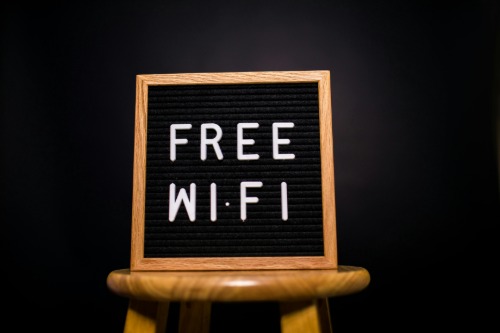
Paying over $100 a month for spotty Wi-Fi feels normal in America, but it shouldn’t be. The U.S. has some of the highest internet costs in the world, yet service is often slow and unreliable. Meanwhile, countries like South Korea, France, and Romania offer fast, affordable internet as a standard utility. Many governments even regulate internet providers to ensure competition and fair pricing.
In the U.S., however, telecom companies have monopolies in many areas, leaving customers with few choices. Rural communities especially suffer, with some lacking high-speed internet access entirely. Other countries recognize that internet access is essential for education, work, and daily life, so they make it widely available. But in America, decent Wi-Fi is treated as a premium service rather than a necessity.
10. Affordable Childcare
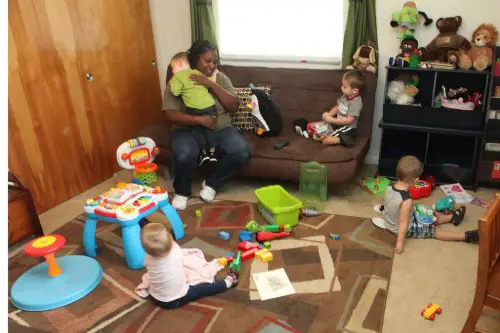
For many American parents, childcare costs as much as rent—or even more. Finding a safe, reliable, and affordable place to leave your child while you work is a constant struggle. Meanwhile, countries like Denmark, France, and Canada heavily subsidize childcare, making it either free or extremely affordable. Parents in these countries don’t have to choose between working and affording daycare.
In the U.S., childcare is largely privatized, meaning prices vary wildly and often feel impossible to manage. Many families rely on relatives or are forced to become stay-at-home parents simply because they can’t afford daycare. Other countries see childcare as a public good that benefits both families and the economy. But in America, it’s yet another thing that’s only accessible to those who can afford it.
11. Access to Quality Mental Health Services

In the U.S., mental health services can be expensive, difficult to access, and often not covered adequately by insurance. Therapy, counseling, and psychiatric care can come with high out-of-pocket costs, leaving many individuals without the support they need. Meanwhile, in countries like the UK, Australia, and Sweden, mental health care is more readily available and often covered by public health systems. Citizens have access to affordable or free therapy and mental health services as part of their overall healthcare benefits.
These countries recognize the importance of mental well-being and have systems in place to ensure that people can access mental health support without financial barriers. In many places abroad, therapy and counseling are seen as essential services, just like physical healthcare, which helps to reduce the stigma surrounding mental health. In contrast, in the U.S., individuals often have to navigate complicated insurance systems or pay expensive fees to get the support they need.
12. Functional Train Systems
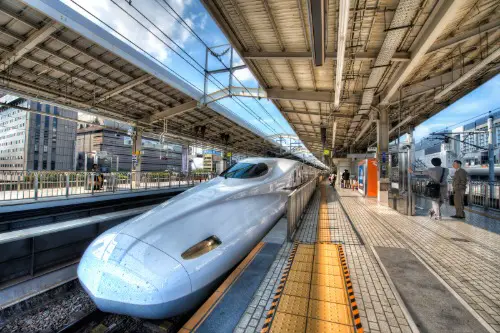
Americans who visit Japan or Germany often come back raving about the train systems—and for good reason. High-speed rail connects major cities, local trains run frequently, and everything is clean and efficient. Meanwhile, in the U.S., train travel is slow, expensive, and limited to just a few regions. Amtrak, the country’s main rail service, is outdated and often costs more than flying.
Other countries have invested in trains as a serious mode of transportation, reducing traffic and emissions. In contrast, the U.S. remains heavily car-dependent, despite growing frustrations with congestion and fuel costs. Even short train trips between nearby cities can take hours and cost a fortune. While the rest of the world enjoys seamless train travel, Americans treat it as a rare, expensive novelty.
13. Free Public Restrooms
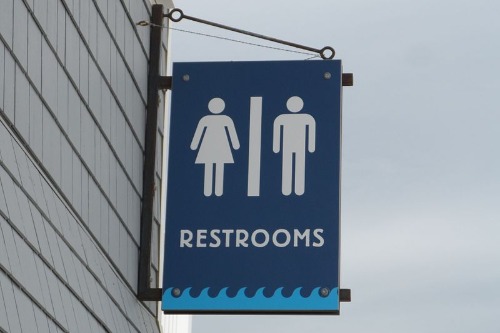
If you’re out in an American city and need a bathroom, good luck. Most places either don’t have public restrooms or require you to buy something to use one. Meanwhile, in countries like Japan, Germany, and the UK, free public restrooms are common and well-maintained. People expect to be able to find a clean bathroom when they need one, without having to beg a barista for a key.
This problem is especially frustrating for tourists, parents with young kids, and anyone with a medical condition. In some U.S. cities, you’ll find a few paid restrooms, but they’re often dirty and inconvenient. Other countries see public restrooms as a basic necessity, not a privilege. But in America, they’re oddly rare, forcing people to plan bathroom breaks like a military operation.
14. Affordable Housing

In many American cities, affordable housing feels like a distant dream. Skyrocketing rents and home prices are pushing the middle class further out of urban centers, forcing people to spend more than half of their income just to keep a roof over their heads. Meanwhile, in countries like Germany, Austria, and Singapore, housing is often more reasonably priced and there are long-term policies in place to keep it affordable.
The difference comes down to stronger regulations and long-standing social policies that ensure housing doesn’t become a speculative market for the wealthy. In many European countries, cities offer subsidized or rent-controlled housing options to ensure residents aren’t priced out. In the U.S., however, the lack of affordable housing is causing a crisis that’s increasingly difficult to solve. The idea of having access to affordable housing, no matter your income, is a luxury that the majority of Americans can only dream of.
15. Clean and Accessible Public Spaces
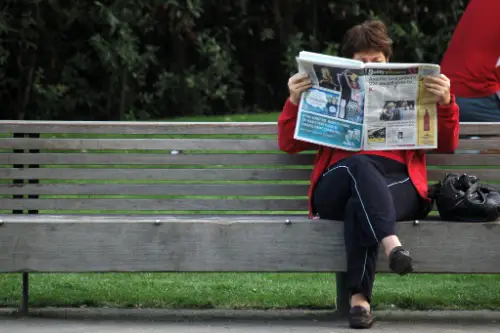
In many parts of the U.S., public spaces like parks, streets, and public plazas can sometimes feel neglected, especially in urban areas. Many cities struggle to maintain public areas, and some are often overcrowded or poorly equipped. In contrast, countries like the Netherlands, Japan, and New Zealand prioritize clean, well-maintained public spaces. Parks and public squares are often designed to be safe, accessible, and inviting for everyone, regardless of age or background.
These countries understand that public spaces aren’t just for leisure—they’re an essential part of creating connected, healthy communities. The focus is not just on maintaining cleanliness but also on making these spaces functional and enjoyable for all citizens. In the U.S., however, public areas are often underfunded, and many are limited to specific neighborhoods or social classes. The emphasis on accessible, well-maintained public spaces is a luxury many Americans would love to have in their own communities.


